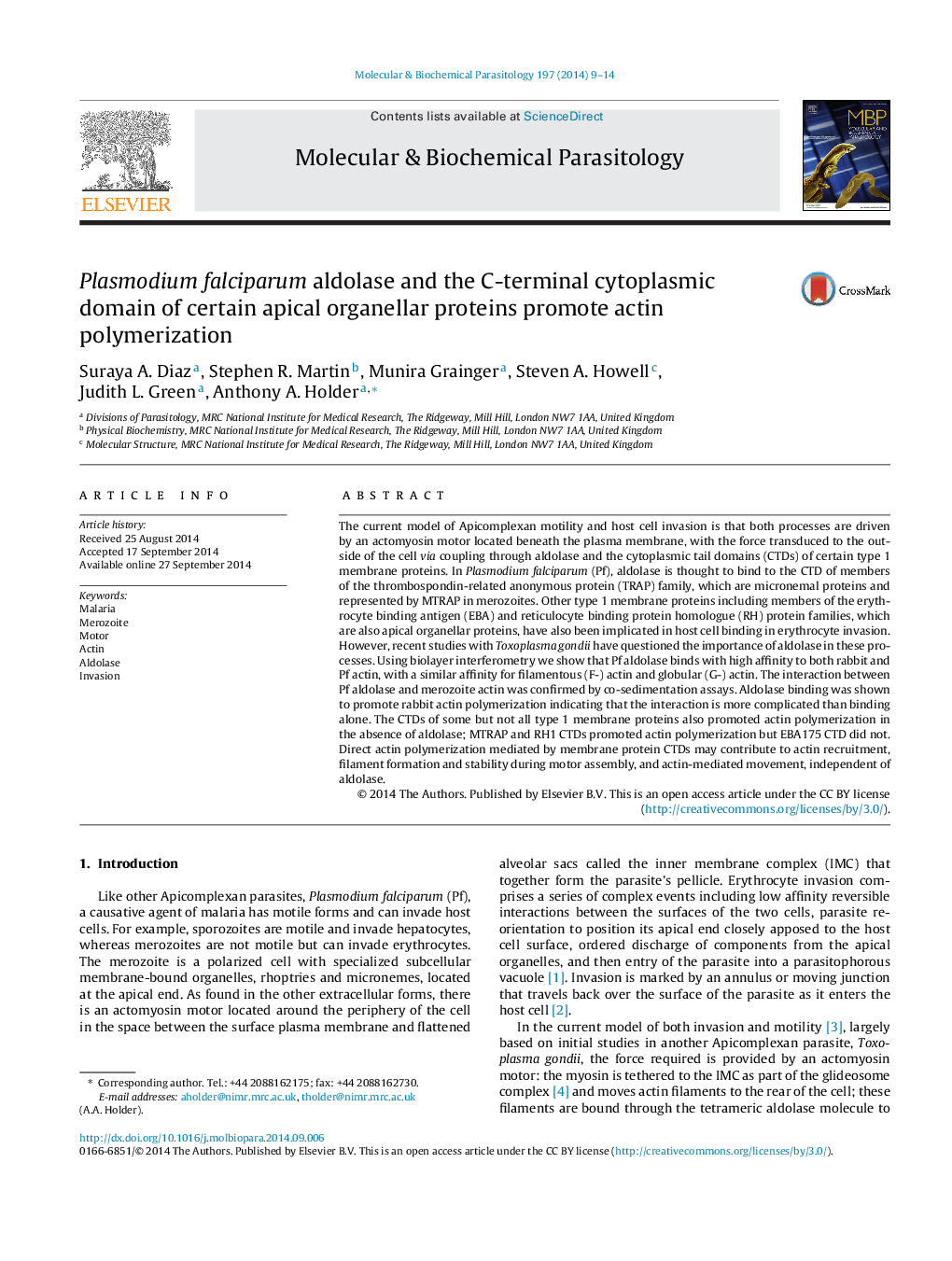| کد مقاله | کد نشریه | سال انتشار | مقاله انگلیسی | نسخه تمام متن |
|---|---|---|---|---|
| 5915404 | 1570650 | 2014 | 6 صفحه PDF | دانلود رایگان |

The current model of Apicomplexan motility and host cell invasion is that both processes are driven by an actomyosin motor located beneath the plasma membrane, with the force transduced to the outside of the cell via coupling through aldolase and the cytoplasmic tail domains (CTDs) of certain type 1 membrane proteins. In Plasmodium falciparum (Pf), aldolase is thought to bind to the CTD of members of the thrombospondin-related anonymous protein (TRAP) family, which are micronemal proteins and represented by MTRAP in merozoites. Other type 1 membrane proteins including members of the erythrocyte binding antigen (EBA) and reticulocyte binding protein homologue (RH) protein families, which are also apical organellar proteins, have also been implicated in host cell binding in erythrocyte invasion. However, recent studies with Toxoplasma gondii have questioned the importance of aldolase in these processes. Using biolayer interferometry we show that Pf aldolase binds with high affinity to both rabbit and Pf actin, with a similar affinity for filamentous (F-) actin and globular (G-) actin. The interaction between Pf aldolase and merozoite actin was confirmed by co-sedimentation assays. Aldolase binding was shown to promote rabbit actin polymerization indicating that the interaction is more complicated than binding alone. The CTDs of some but not all type 1 membrane proteins also promoted actin polymerization in the absence of aldolase; MTRAP and RH1 CTDs promoted actin polymerization but EBA175 CTD did not. Direct actin polymerization mediated by membrane protein CTDs may contribute to actin recruitment, filament formation and stability during motor assembly, and actin-mediated movement, independent of aldolase.
Journal: Molecular and Biochemical Parasitology - Volume 197, Issues 1â2, October 2014, Pages 9-14